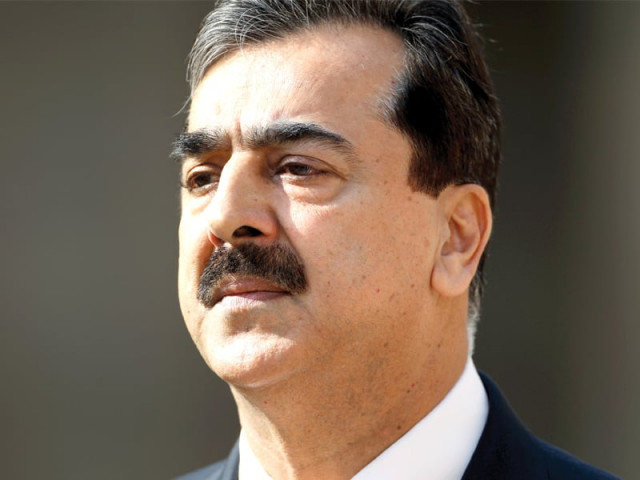Gilani risked political future by not filing appeal: Experts
Unless he proves that conviction was quashed, ECP can reject his nomination.

By not filing an appeal against his conviction, Prime Minister Yousaf Raza Gilani has put his political future at a risk, experts say.
Under Article 63 of the Constitution, a person convicted by a court cannot contest elections, and if his nomination is accepted by the Election Commission of Pakistan (ECP), any opposing candidate can challenge it in a court of law.
“There are 90% chances that his nomination papers will be rejected on the basis of his conviction in the pre-poll scrutiny, unless he proves that this conviction was quashed through appropriate forums,” an ECP official said on condition of anonymity.
There are certain precedents, however, where the ECP showed leniency and accepted nominations of some high-profile personalities who did not fulfill the requirements of Articles 62 and 63 of the Constitution.
One major case was the nomination papers of former president Gen (retd) Pervez Musharraf when he contested the presidential elections in 2007. Under the law, a government servant cannot contest elections for up to two years after his retirement.
Judicial answer required
“Yes, the question (of his conviction) will arise, and it is already under discussion. Much will depend on the fate of the speaker’s ruling since she took a decision at a political forum,” said former Senate chairman and legal expert Waseem Sajjad.
“The matter, however, will be clear once it is decided at a judicial forum if the ruling is challenged in any high court,” Sajjad added.
He said that the April 26th short order and the subsequent detailed judgment of May 8 left the question of the premier’s disqualification unanswered, creating room for the speaker’s ruling.
“There are at least two clauses in the Constitution under which a person can be disqualified – either on the basis of moral turpitude or if convicted in a case having at least two years of imprisonment. Then there is Article 63 (1) (g) under which Gilani was convicted which was not part of the original Constitution, but inserted during the regime of Gen Ziaul Haq,” Sajjad said.
Already disqualified
Constitutional expert and Senator SM Zafar, however, had a different point of view.
According to him, Gilani is disqualified to be a prime minister even after the speaker’s ruling, and cannot contest the general elections due next year. Under Article 69, the proceedings of parliament cannot be challenged in any court of law but the speaker’s ruling on Prime Minister Gilani’s disqualification does not fall under the domain of parliament’s proceedings.
On the acceptance of Musharraf’s nomination, Zafar said the nomination was accepted conditionally since a petition was already filed against his elections.
He also contested the Javed Hashmi precedent cited by the speaker in her ruling, saying that Hashmi had an appeal pending in the superior courts at the time of his contesting for the office of leader of the house.
Zafar said that disqualification on the basis of moral turpitude and two-year gap after service does not apply in Gilani’s case since every clause of Article 63 is dealt with independently and is not read with any other Article of the Constitution.
Published in The Express Tribune, May 27th, 2012.



















COMMENTS
Comments are moderated and generally will be posted if they are on-topic and not abusive.
For more information, please see our Comments FAQ